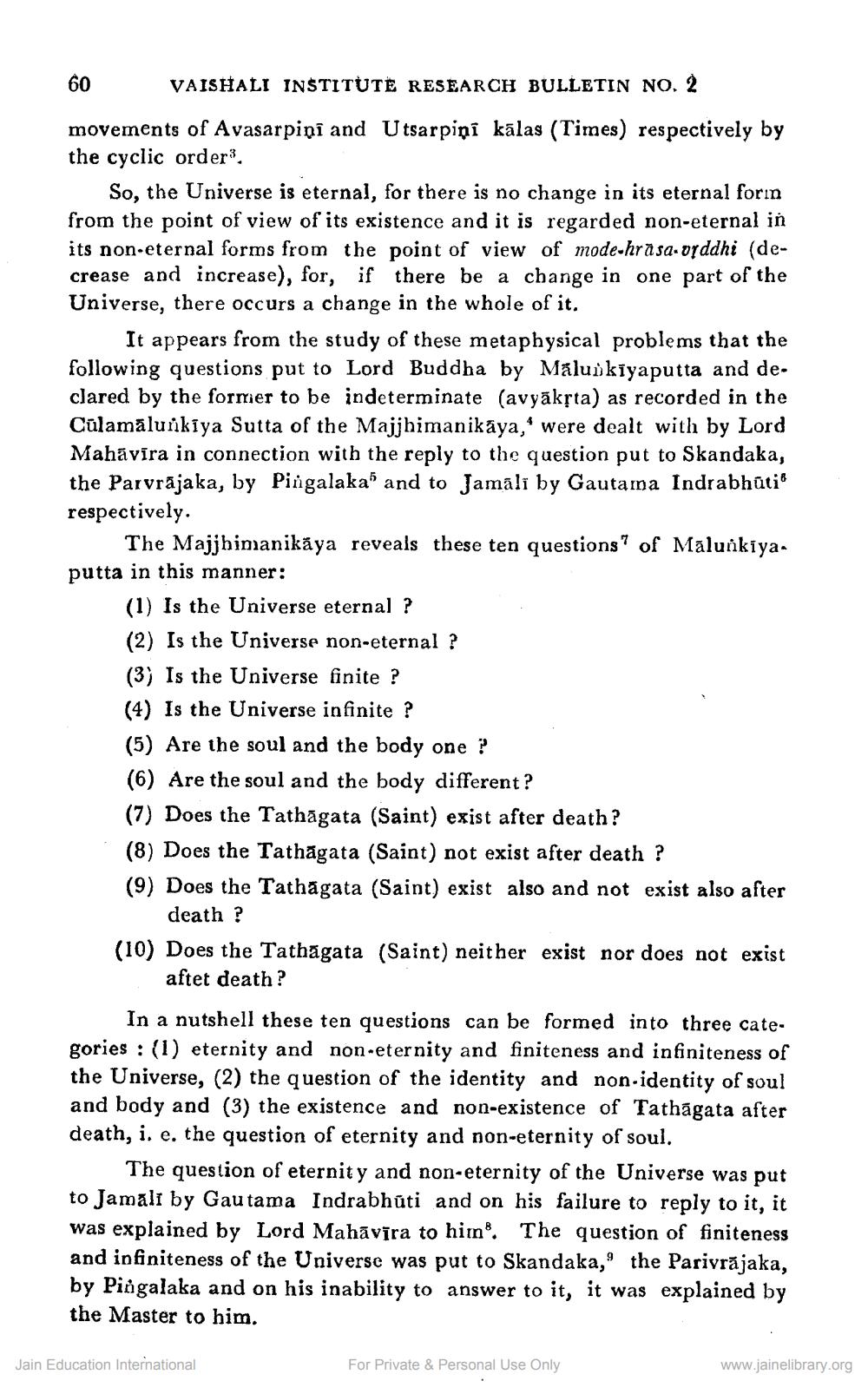________________
60
VAISHALI INSTITUTE RESEARCH BULLETIN NO. 2
movements of Avasarpiņi and Utsarpiņi kālas (Times) respectively by the cyclic order".
So, the Universe is eternal, for there is no change in its eternal forin from the point of view of its existence and it is regarded non-eternal in its non-eternal forms from the point of view of mode-hrasa-vyddhi (decrease and increase), for, if there be a change in one part of the Universe, there occurs a change in the whole of it.
It appears from the study of these metaphysical problems that the following questions put to Lord Buddha by Malunkiyaputta and declared by the former to be indeterminate (avyākṛta) as recorded in the Culamalunkiya Sutta of the Majjhimanikāya,* were dealt with by Lord Mahavira in connection with the reply to the question put to Skandaka, the Parvrajaka, by Pingalaka" and to Jamali by Gautama Indrabhūti" respectively.
The Majjhimanikäya reveals these ten questions of Malunkiya. putta in this manner:
(1) Is the Universe eternal ?
(2) Is the Universe non-eternal ?
(3) Is the Universe finite ?
(4) Is the Universe infinite ?
(5) Are the soul and the body one?
(6) Are the soul and the body different?
(7) Does the Tathāgata (Saint) exist after death?
(8) Does the Tathāgata (Saint) not exist after death?
(9) Does the Tathagata (Saint) exist also and not exist also after death?
(10) Does the Tathāgata (Saint) neither exist nor does not exist
aftet death?
In a nutshell these ten questions can be formed into three categories (1) eternity and non-eternity and finiteness and infiniteness of the Universe, (2) the question of the identity and non-identity of soul and body and (3) the existence and non-existence of Tathāgata after death, i. e. the question of eternity and non-eternity of soul.
The question of eternity and non-eternity of the Universe was put to Jamali by Gautama Indrabhuti and on his failure to reply to it, it was explained by Lord Mahāvīra to him. The question of finiteness and infiniteness of the Universe was put to Skandaka," the Parivrājaka, by Pingalaka and on his inability to answer to it, it was explained by the Master to him.
Jain Education International
For Private & Personal Use Only
www.jainelibrary.org




